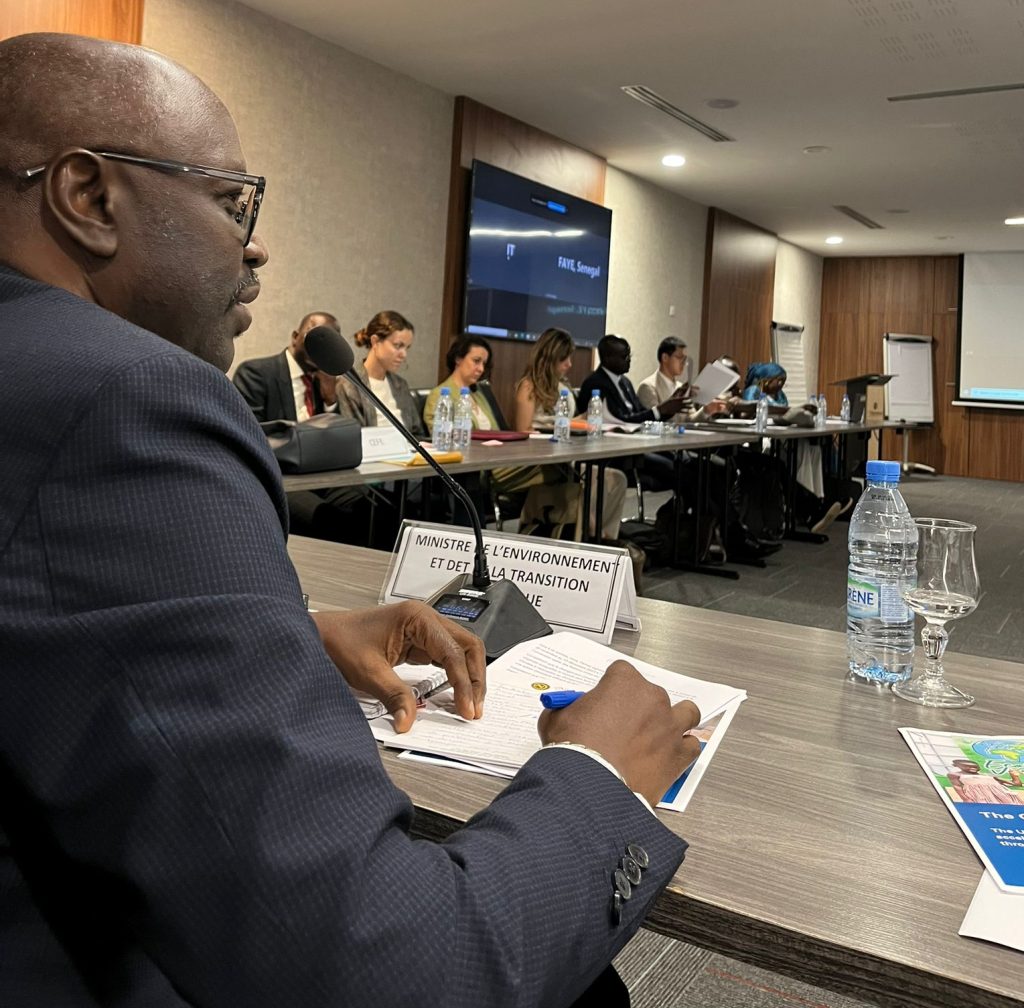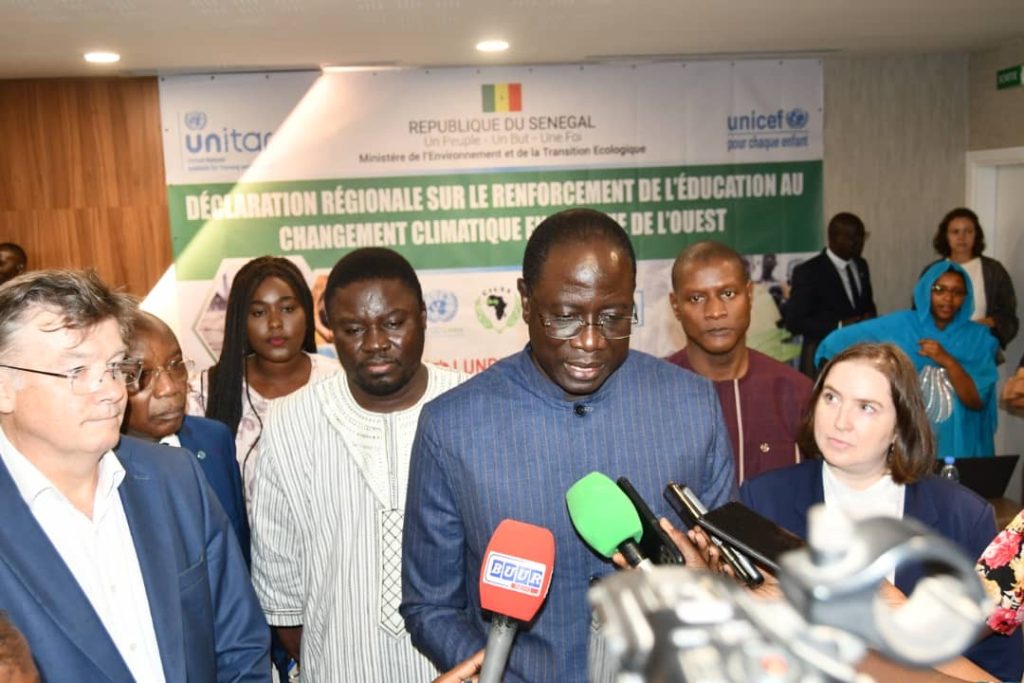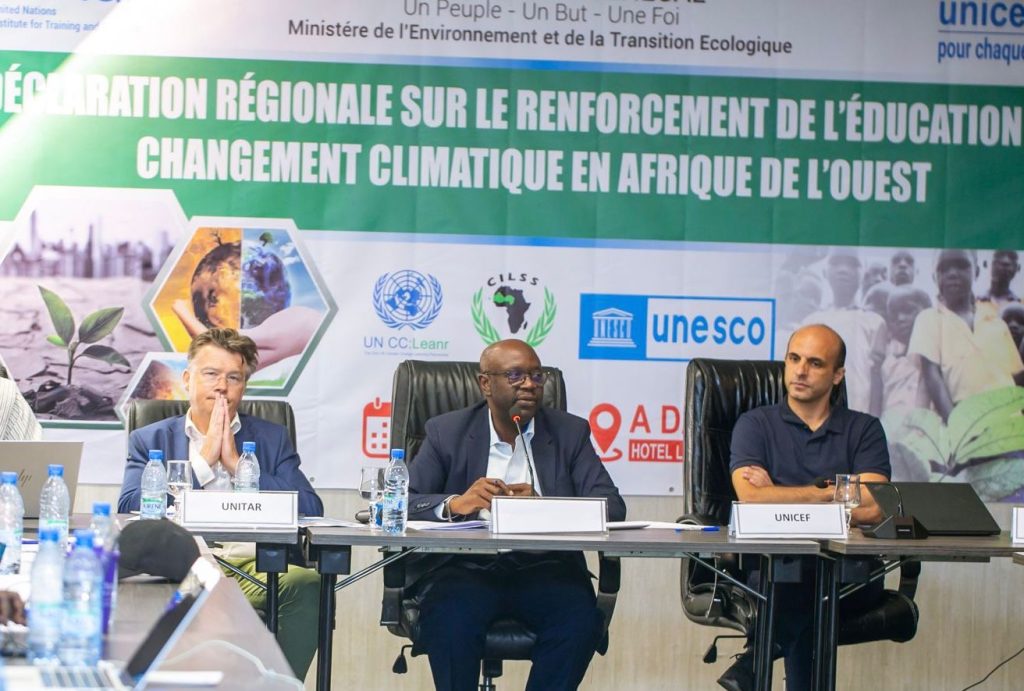West African countries are stepping up their commitments to climate change education. This week, Guinea-Bissau became the seventh country to endorse the “Regional Declaration on Strengthening Climate Change Education in West Africa”, launched at COP28, joining Burkina Faso, Côte d’Ivoire, Guinea, Niger, Senegal, and Togo. This development confirms the region’s climate education momentum, which also saw Cabo Verde pledge to sign the Declaration soon.
The signing occurred during a national workshop on the declaration’s implementation hosted by the Government of Senegal on August 12, 2024 . This workshop offered a valuable platform for a diverse group of stakeholders, from government officials to civil society representatives, to engage with the document, understand its objectives, and discuss strategies for enhancing climate change education both nationally and regionally
Mr. Daouda Ngom, Minister of Environment and Green Transition, attended the workshop and answered several questions from the audience.

Workshop session.
The Declaration is emerging as a compelling instrument for countries in the region to push for increased investment in climate change education. West African nations increasingly acknowledge the need for a unified regional approach to ramp up climate change education in the region. The Government of Senegal, for instance, has multiple climate education initiatives underway and plans to explore collaborative opportunities with neighboring countries to maximize the impact of these programs.

Mr. Daouda Ngom gave an interview during the workshop.
Investing in climate education offers significant economic and environmental benefits, particularly in regions with large youth populations.
“Africa has a large and growing young population, with about 60 percent under 25. While the sheer size of this young population poses challenges in terms of providing education and employment, it also brings major opportunities …. in ways that can accelerate economic growth, build resilience, and drive transformational adaptation.” – States and Trends in Adaptation, Global Centre on Adaptation
This declaration stems from a UNITAR-UN CC: Learn initiative, supported by the Permanent Inter-State Committee for Drought Control in the Sahel (CILSS) and Burkina Faso at COP 27 in 2022. The initiative united eight West African states to address the critical issue of funding climate change education to confront the climate crisis.
In the upcoming COP29, in Baku, Azerbaijan, the Declaration will keep making waves with several events planned and additional countries expected to become signatories.

